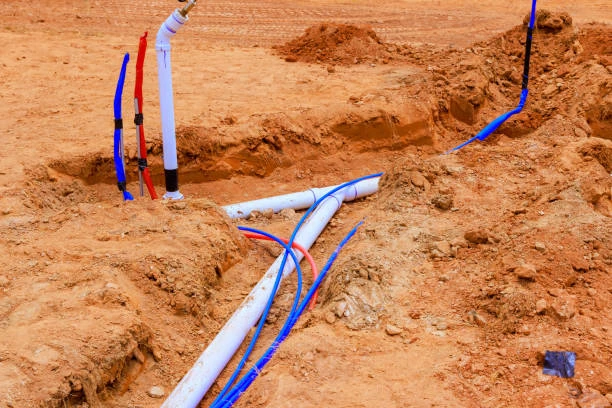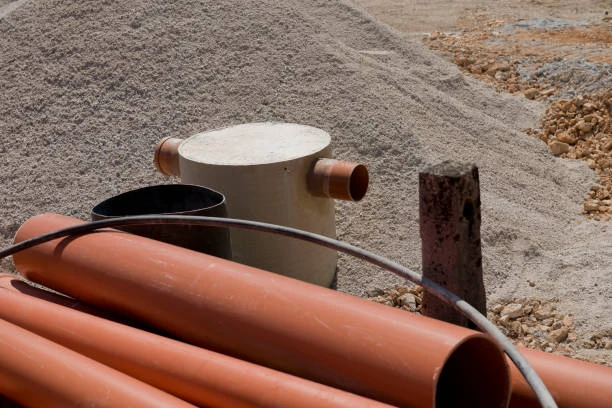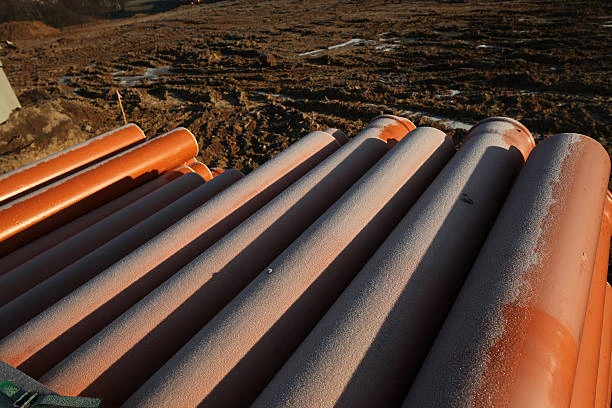Introduction
In modern plumbing systems, the choice of materials plays a crucial role in ensuring long-term reliability, efficiency, and cost-effectiveness. UPVC pipe and fittings have gained widespread use for plumbing installations due to their numerous advantages over traditional materials like copper and steel. This article explores the impact of UPVC pipe and fitting on plumbing systems, highlighting their benefits, applications, and maintenance practices.
What is UPVC Pipe and Fitting?
UPVC pipe and fitting refer to a type of plastic piping used in a variety of plumbing applications. Unlike PVC (Polyvinyl Chloride), which is flexible, UPVC is rigid and lacks plasticizers. This rigidity provides UPVC with enhanced strength, durability, and resistance to pressure, making it an ideal choice for many plumbing systems.
UPVC pipes and fittings are commonly used in plumbing, drainage, and even in industrial applications. Their resistance to corrosion, chemical stability, and ease of installation make them a popular choice for homeowners, businesses, and contractors alike.
Advantages of UPVC Pipe and Fitting
- Cost-Effective Solution
One of the most attractive features of UPVC pipes and fittings is their affordability. Compared to traditional materials like copper or steel, UPVC provides a significantly lower upfront cost. This makes it an ideal solution for both residential and commercial plumbing projects where budget considerations are important. Additionally, the long lifespan of UPVC helps reduce long-term maintenance costs. - Durability and Strength
UPVC pipes are highly durable and resistant to corrosion, unlike metal pipes that are susceptible to rust and degradation over time. They can withstand harsh environmental conditions, including exposure to moisture, soil, and chemicals. This makes UPVC pipes suitable for both underground and above-ground plumbing systems. Furthermore, their high tensile strength ensures they can handle high pressure without cracking or leaking. - Chemical Resistance
UPVC pipes and fittings exhibit excellent resistance to a wide range of chemicals, making them suitable for plumbing systems that deal with acidic or alkaline substances. Unlike metal pipes, UPVC is not prone to reactions with most chemicals, which prevents degradation and extends the life of the pipes. - Lightweight and Easy to Handle
UPVC pipes are lightweight compared to metal alternatives, which makes handling and installation much easier. This reduces labor costs and time during installation. Contractors appreciate the convenience of working with UPVC pipes, as they can be cut and shaped easily on-site without specialized equipment. - Leak-Proof Joints
UPVC pipes use solvent welding for joining, which creates seamless, leak-proof joints. This method ensures a high level of security against leaks, which is essential for maintaining the integrity of the plumbing system. The strong bonds formed between UPVC pipes and fittings prevent water from escaping, reducing the risk of water damage to surrounding areas.
Applications of UPVC Pipe and Fitting
- Residential Plumbing
UPVC pipes are commonly used in residential plumbing systems for cold water supply lines, drainage systems, and venting applications. Their affordability, durability, and ease of installation make them an excellent choice for home plumbing systems. UPVC pipes are also ideal for use in rainwater harvesting systems and other eco-friendly plumbing setups. - Commercial and Industrial Applications
Due to their strength and resistance to chemicals, UPVC pipes are frequently used in commercial and industrial plumbing systems. They are ideal for transporting chemicals, wastewater, and even hot water in certain applications. Many factories, warehouses, and commercial buildings rely on UPVC piping systems for their plumbing needs, as the pipes can handle higher pressure and resist the corrosive effects of certain industrial chemicals. - Agricultural Systems
In agricultural settings, UPVC pipes and fittings are often used for irrigation systems. Their resistance to UV rays and moisture makes them perfect for outdoor environments. Additionally, the affordability of UPVC makes it an attractive option for large-scale agricultural installations. - Wastewater and Drainage Systems
UPVC pipes are a popular choice for wastewater and drainage systems due to their ability to handle waste and resist clogging. They are commonly used in stormwater drainage systems, sewer lines, and septic systems. The smooth internal surface of UPVC pipes helps prevent blockages and allows for efficient flow.
The Environmental Impact of UPVC Pipe and Fitting
UPVC pipes offer several environmental benefits compared to traditional piping materials. Their long lifespan reduces the frequency of replacements, which helps reduce waste. Moreover, UPVC is fully recyclable, so old pipes can be repurposed into new materials, reducing the environmental impact of disposal.
Furthermore, the lightweight nature of UPVC results in less fuel consumption during transportation, reducing the carbon footprint associated with transporting plumbing materials. This, combined with the material’s longevity, positions UPVC as an eco-friendly option for plumbing systems.

Installation of UPVC Pipe and Fitting
Installing UPVC pipes and fittings is relatively simple compared to other materials. Here are a few basic steps:
- Measure and Cut: Measure the required length of the pipe and use a pipe cutter or saw to cut the UPVC pipe to size.
- Clean and Prepare: Clean the ends of the pipe and fittings to remove any dirt or debris.
- Apply Solvent Cement: Apply solvent cement to both the inside of the fitting and the outside of the pipe.
- Join the Pieces: Insert the pipe into the fitting and twist slightly to ensure a proper bond.
- Allow to Dry: Allow the joint to dry and set for the recommended time before using the system.
By following these steps, you can ensure a leak-free installation that will last for many years.
Maintenance of UPVC Pipe and Fitting
UPVC pipes require minimal maintenance once installed. However, regular inspection can help prolong the lifespan of the plumbing system. Here are a few maintenance tips:
- Check for Cracks or Damage: Regularly inspect the pipes for any visible cracks or signs of wear.
- Clear Blockages: Occasionally check for any blockages in the system and clear them promptly to ensure efficient water flow.
- Protect from Extreme Temperatures: While UPVC pipes can handle a wide range of temperatures, it’s important to avoid prolonged exposure to extreme heat, which can cause the pipes to weaken over time.
- Avoid High-Pressure Jets: Avoid using high-pressure cleaning tools directly on UPVC pipes, as they can cause damage to the joints and pipe material.
Conclusion
UPVC pipe and fittings have proven to be a revolutionary material in plumbing systems, offering numerous advantages such as cost-effectiveness, durability, chemical resistance, and ease of installation. With applications spanning residential, commercial, industrial, and agricultural sectors, UPVC has become a go-to option for many plumbing needs. By understanding the benefits and proper installation and maintenance practices, property owners and contractors can ensure the longevity and efficiency of their plumbing systems.
Frequently Asked Questions (FAQs)
- What is the difference between UPVC and PVC pipes? UPVC is a rigid material that offers higher tensile strength and resistance to pressure compared to standard PVC, which is more flexible. UPVC is typically used for plumbing, while PVC is commonly used for electrical conduit.
- Can UPVC pipes be used for hot water? UPVC pipes are designed primarily for cold water applications. For hot water, CPVC (Chlorinated Polyvinyl Chloride) pipes are a better option.
- How long do UPVC pipes last? UPVC pipes can last up to 50 years or more when installed correctly and maintained properly.
- Are UPVC pipes resistant to corrosion? Yes, UPVC pipes are highly resistant to corrosion, which makes them ideal for use in environments where other materials, such as metal pipes, might deteriorate over time.
- Can UPVC pipes be recycled? Yes, UPVC is fully recyclable, making it an environmentally friendly option for plumbing systems.

















